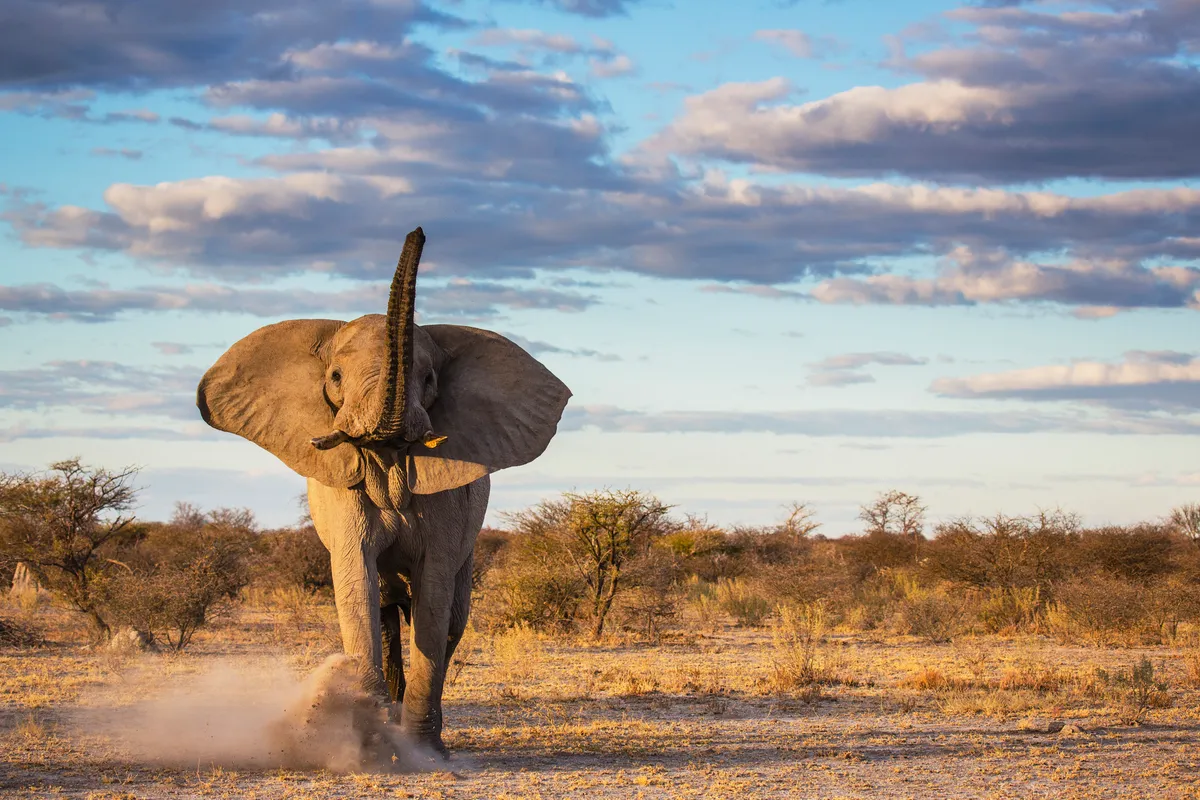Elephant society revolves around stable herds of females who raise and educate calves cooperatively under the leadership of an elderly, experienced matriarch. But new research suggests that mature males, too, play a crucial educational role – a discovery that has implications for the regulation of trophy hunting.
Rather little is known about the social lives of males after they leave their natal herd in adolescence, says University of Exeter biologist Connie Allen, who conducted the research in Botswana's Makgadikgadi Pans National Park. Certainly, the males do have a social life, though their friendships are more casual than those of females.
“Some males have regular friends, but in general male groups are very fluid and changeable,” explains Allen.
“If you talk to the safari guides, they all say the young males learn from the older bulls,” she adds. “But that hadn't been scientifically investigated. Males have huge ranges, so they're really difficult to track.”

Using video camera-traps, Allen and her colleagues have shown that male groups travelling between watering holes are routinely led by the most experienced bulls.
“It suggests the younger ones target the old bulls for their knowledge and survival skills – how and where to find things like water and fruiting trees,” says Allen. “They seem to occupy a similar role to the females in breeding herds.”
But what’s in it for the mature bulls? Why should they share their hard-won know-how with potential rivals? Perhaps, by keeping competitors close, an old bull is able to inhibit their sexual activity. Allen says that, in the absence of old bulls, males can become “hyper-aggressive” and enter the sexually active state of musth while unusually young.
Mature bulls – with their great size and large tusks – are the most attractive targets for trophy hunters, and enjoy less legal protection than females.
“That needs rethinking,” says Allen. “We don’t really know the knock-on consequences of the loss of information built up over 20, 30 or 40 years, but it’s probably going to be damaging to the wider group.”
Then again, Allen adds, targeting bulls that repeatedly raid farms could help reduce human-elephant conflict: “It might make good sense to take out older males that are teaching younger ones to raid crops.”
Read the full paper in Scientific Reports.
Main image: Elephants in Botswana. © Getty